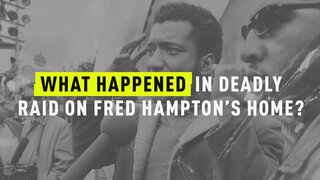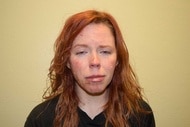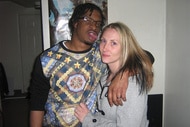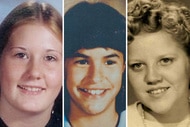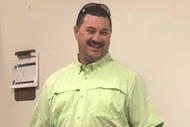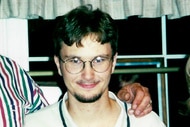Create a free profile to get unlimited access to exclusive videos, breaking news, sweepstakes, and more!
What Happened To William O'Neal After The Deadly Raid That Killed Black Panther Fred Hampton?
As a teenage criminal, William O’Neal was recruited to infiltrate the Chicago chapter of the Black Panther Party. He died a conflicted man by suicide over two decades later.
The complicated life of William O'Neal, the FBI informant who played a role in the notorious 1969 killing of Black Panther Party leader Fred Hampton by law enforcement, ended in 1990 on a Chicago expressway when he died by suicide.
O'Neal was a 17-year-old who had already been involved in “everything from car theft and home invasion to kidnapping and torture,” the Chicago Reader reported, when he was caught in 1966 joyriding in a stolen car across state lines, from Illinois to Michigan. When brought in by authorities, FBI agent Roy Martin Mitchell saw a rare opportunity and recruited O’Neal to infiltrate the Chicago chapter of the BPP, which the bureau had deemed a radical threat. In exchange, he'd have his felony charges dropped. Their relationship would continue for years.
“He became like a father to O'Neal and he trusted Roy at a time when not many people trusted anybody," U.S. District Judge Charles Kocoras told the Chicago Tribune in 2000.
The relationship between O’Neal and Mitchell as they worked together to infiltrate the BPP is depicted in the movie “Judas and the Black Messiah,” out Friday in theaters and HBO Max.
Warning: spoilers for “Judas And the Black Messiah” below.
With his charm and bravado, O’Neal was able to quickly enter Hampton’s inner circle. Soon, he was named the group’s head of security and given keys to its headquarters and safe houses. Meanwhile, the tension between law enforcement and the BPP — who were involved in social good programs, launched direct action and police oversight campaigns, and advocated for armed struggle against the establishment — ratcheted up over this period, turning violent and allegedly deadly.
In 1969, O’Neal provided the FBI with the layout of Hampton’s Chicago apartment, which was then passed on to the state’s attorney’s office. In a Dec. 4 pre-dawn raid, Hampton and another party leader were shot dead, four other Panthers were injured, and seven in total were arrested. The deadly raid sent shockwaves through the city and ultimately led to the decline of the BPP and the Rainbow Coalition, the multicultural umbrella group of rising community organizations Hampton had founded.
After the infamous raid, O’Neal continued on with the FBI. In 1972, he helped convict Chicago police Sgt. Stanley Robinson, who was accused of murdering drug dealers, according to the Tribune.
But in 1973, his role as an informant was discovered and he was relocated under the Federal Witness Protection Program to California and given the alias of William Hart. He reportedly returned to the Chicago area in the 1980s after the tension of living under witness protection led to him splitting with his first wife.
Speaking with the Tribune in 1984, O`Neal said that while he had thrived working with law enforcement, he ultimately felt he’d been ''just a pawn in a very big game.''
Until his death, he worked for an attorney in downtown Chicago, friends told the Tribune, adding that he’d contacted some acquaintances upon his return, but mostly kept to himself. O’Neal did have a relationship with his uncle, Ben Heard, his drinking buddy and confidant. Still living under the assumed name of Hart, he was at Heard’s home having beers on Martin Luther King Jr. Day just before his death. Heard said that night his nephew kept leaving to use the bathroom.
"He'd stay in there 10 or 15 minutes. The last time he stayed 20 minutes. He came out in a rage and he tried to jump out my living room window [which is on the second floor],” Heard told the Chicago Reader. “I stopped him. I grabbed him by the ankles. I wrestled with him but he broke free and he ran out the door.”
O’Neal then bolted onto a nearby expressway, police said. His death was ruled a suicide by the Cook County Medical Examiner's Office. He was 40.
After his death, an interview O’Neal had sat for in April 1989 with the public television series ''Eyes on the Prize II” aired in Chicago. While he’d previously expressed a blasé attitude about his dark and complex past with the Panthers and the FBI, he began to shift in his chair while discussing the moment back in 1969 when he re-entered the scene of Hampton’s killing. With a distant look in his eyes, he began to express a sense of contrition.
“I just began to realize that the information that I had supplied leading up to that moment had facilitated that raid,” he said. “I knew that indirectly I had contributed — and I felt it, and I felt bad about it. And then I got mad. And then I had to conceal those feelings, which made it worse. I couldn't say anything. I just had to continue to play the role.”
If you are in crisis, please call the National Suicide Prevention Lifeline at 1-800-273-TALK (8255), or contact the Crisis Text Line by texting TALK to 741741.
